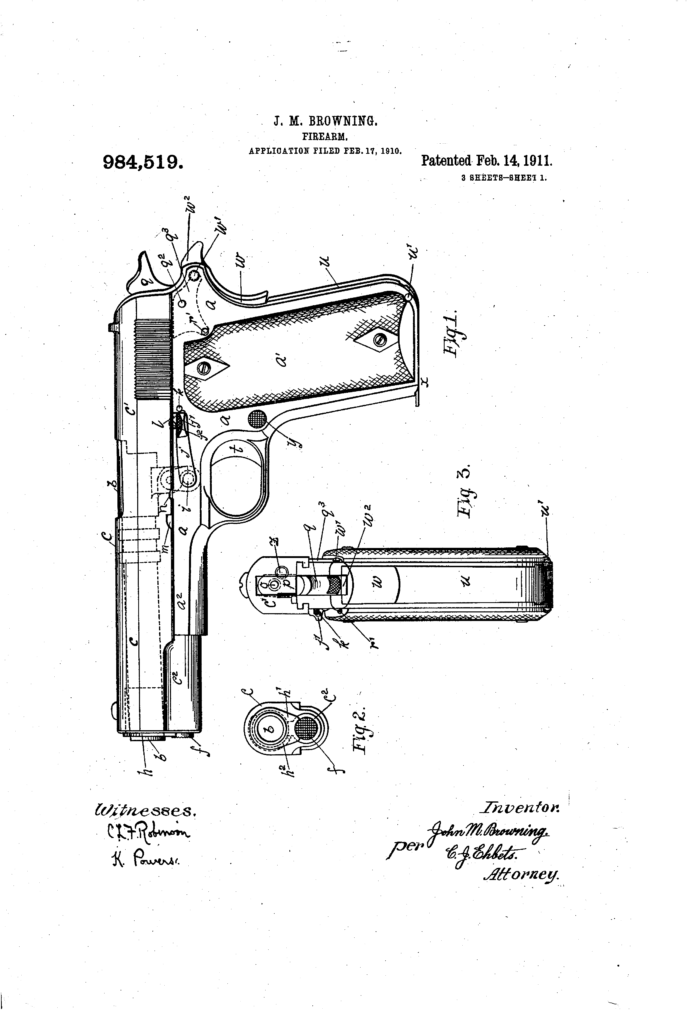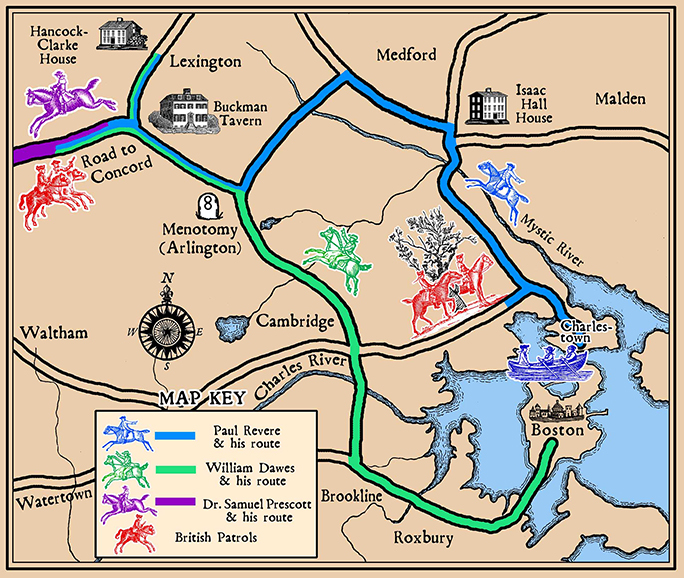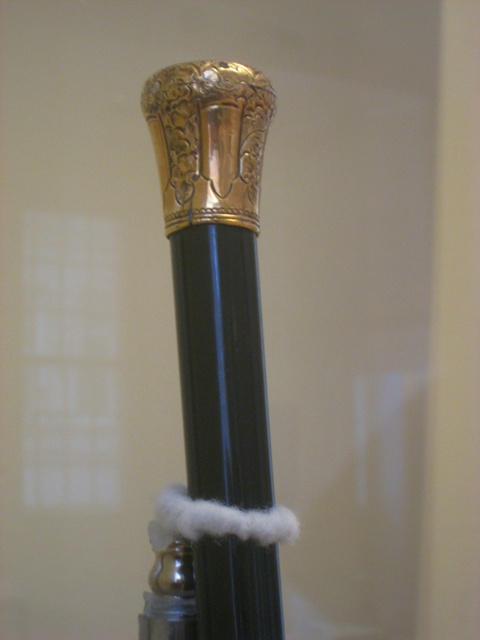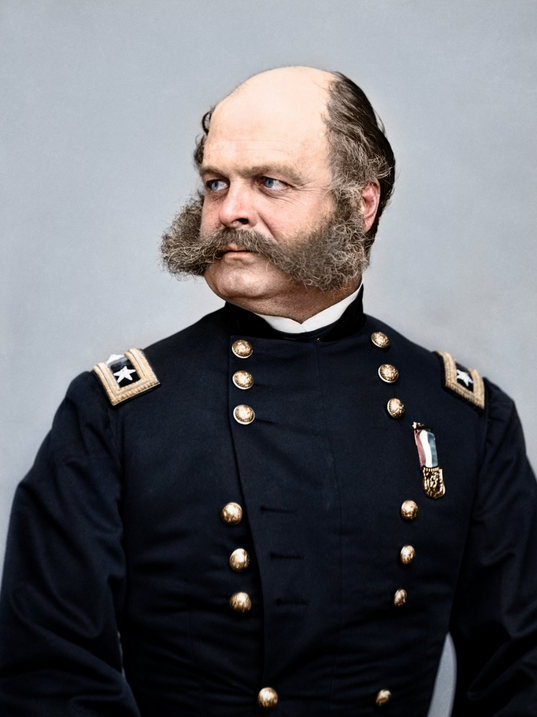I originally posted this on July 4th of 2010. I am reposting it as I have every year since to recognize these early North Carolina patriots from Mecklenburg County. Despite all the changes in the Queen City since then, there are still many there or from there who continue the fight for liberty and especially our Second Amendment rights.
Before there was a Declaration of Independence of 1776, there were the Mecklenburg Declaration of May 20, 1775 and the Mecklenburg Resolves of May 31, 1775. While there is significant controversy over the authenticity of the former, there is none regarding the latter. There is controversy about the Mecklenburg Declaration because the original copy is reputed to have been destroyed in a fire and mention of it then only comes to light in 1819. Nonetheless, May 20, 1775 is the date enshrined on both the Great Seal of the State of North Carolina and the State Flag. Even the state flag used during the Confederacy had those dates on it.

Both the Declaration and the Resolves were adopted in Charlotte Town in Mecklenburg County, North Carolina. Charlotte Town is now known as Charlotte. The area had been settled by the heavily Presbyterian immigrants from Northern Ireland and Scotland known as the Scotch-Irish. Upon hearing of the Battles of Lexington and Concord, they had been outraged and the Declaration was the result.
The Mecklenburg Declaration
- That whosoever directly or indirectly abetted or in any way, form or manner countenanced to unchartered & dangerous invasion of our rights as claimed by G. Britain is an enemy to this County – to America & to the inherent & inaliable rights of man.
- We the Citizens of Mecklenburg County do hereby desolve the political bands which have connected us to the Mother Country & hereby absolve ourselves from all allegiance to the British crown & abjure all political connection, contract or association with that nation who have wantonly trampled on our rights & liberties & inhumanely shed the innocent blood of American patriots at Lexington.
- We do hereby declare ourselves a free and independent people – are & of right ought to be a sovereign & self-governing association, under the controul of no power other than that of our God & the general government of the congress, to the maintainence of which independence civil & religious we solemnly pledge to each other our mutual cooperation, our lives, our fortunes & our most sacred honor.
- As we now acknowledge the existence & controul of no law or legal officers, civil or military, within this County, we do hereby ordain & adopt as a rule of life, all, each & every of our former laws – wherein nevertheless the crown of great britain never can be considered as holding rights, privileges, immunities, or authority therein.
- It is also further decreed that all, each & every military officer in this County is hereby reinstated in his former command & authority, he acting conformably to these regulations. And that every member present of this delegation shall henceforth be a civil officer, viz. a Justice of the peace in the character of a ‘Committee-man’ to issue process, hear & determine all matters of controversy according to sd. adopted laws – to preserve peace, union & harmony in sd. County & to use every exertion to spread the love of country & fire of freedom throughout America until a more general & organized government be established in this province. A selection from the members present shall constitute a Committee of public safety for sd. County.
- That a copy of these resolutions be transmitted by express to the President of the Continental Congress assembled in Philadelphia, to be laid before that body.
Ephraim Brevard
Hezekiah J. Balch
John Phifer
James Harris
William Kennon
John Foard
Richard Barry
Henry Downs
Ezra Alexander
Charles Alexander
Zaccheus Wilson
Waightstill Avery
Benjamin PattonMatthew McClure
Neil Morrison
Robert Irwin
John Flennegin
David Reese
William Graham
John Queary
Hezekiah Alexander
Adam Alexander
John Davidson
Richard Harris
Thomas Polk
Abraham AlexanderJohn McKnitt Alexander
While there still exists much controversy on the authenticity of the Declaration, none exists with regard to the Resolves adopted on May 31, 1775. Captain James Jack of Charlotte was sent with a copy of the resolves and a letter to the North Carolina delegates to the Continental Congress requesting their approval by Congress.
The Mecklenburg Resolves
This day the Committee of this County met, and passed the following Resolves:
WHEREAS by an Address presented to his Majesty by both Houses of Parliament in February last, the American Colonies are declared to be in a state of actual rebellion, we conceive that all Laws and Commissions confirmed by, or derived from the Authority of the king or Parliament, are annulled and vacated, and the former civil Constitution of these Colonies for the present wholly suspended. To provide in some Degree for the Exigencies of the County in the present alarming Period, we deem it proper and necessary to pass the following resolves, viz.
1. That all Commissions, civil and military, heretofore granted by the Crown, to be exercised in these Colonies, are null and void, and the Constitution of each particular Colony wholly suspended.
2. That the Provincial Congress of each Province, under the Direction of the Great Continental Congress, is invested with all legislative and executive Powers within their respective Provinces; and that no other Legislative or Executive does or can exist, at this Time, in any of these Colonies.
3. As all former Laws are now suspended in this Province, and the Congress have not yet provided others, we judge it necessary, for the better Preservation of good Order, to form certain Rules and Regulations for the internal Government of this County, until Laws shall be provided for us by the Congress.
4. That the Inhabitants of this Country do meet on a certain Day appointed by this Committee, and having formed themselves into nine Companies, to wit, eight for the County, and one for the Town of Charlotte, do choose a Colonel, and other military Officers, who shall hold and exercise their several Powers by Virtue of this Choice, and independent of Great-Britain, and former Constitution of this Province.
5. That for the better Preservation of the Peace, and Administration of Justice, each of these Companies do choose from their own Body two discreet Freeholders, who shall be impowered each by himself, and singly, to decide and determine all Matters of Controversy arising within the said Company under the Sum of Twenty Shillings, and jointly and together all Controversies under the Sum of Forty Shillings, yet so as their Decisions may admit of Appeals to the Convention of the Select Men of the whole County; and also, that any one of these shall have power to examine, and commit to Confinement , Persons accused of Petit Larceny.
6. That those two Select Men, thus chosen, do, jointly and together, choose from the Body of their particular Company two Persons, properly qualified to serve as Constables, who may assist them in the execution of their Office.
7. That upon the Complaint of any Person to either of these Select men, he do issue his Warrant, directed to the Constable, commanding him to bring the Aggressor before him or them to answer the said Complaint.
8. That these Eighteen Select Men, thus appointed, do meet every third Tuesday in January, April, and October, at the Court-House in Charlotte to hear and determine all Matters of Controversy of Sums exceeding Forty Shillings; also Appeals: And in Cases of Felony, to commit the Person or Persons convicted thereof to close Confinement, until the Provincial Congress shall provide and establish Laws and Modes of Proceeding in Such Cases.
9. That these Eighteen Select Men, thus convened, do choose a Clerk to record the Transactions of the said Convention; and that the said Clerk, upon the Application of any Person or Persons aggrieved, do issue his Warrant to one of the Constables, to summons and warn the said Offender to appear before the convention at their next sitting, to answer the aforesaid Complaint.
10. That any Person making Complaint upon Oath to the Clerk, or any Member of the Convention, that he has Reason to suspect that any Person or Persons indebted to him in a Sum above Forty Shillings, do intend clandestinely to withdraw from the County without paying such Debt; the Clerk, or such Member, shall issue his Warrant to the Constable, commanding him to take the said Person or Persons into safe Custody, until the next sitting of the Convention.
11. That when a Debtor for a Sum below Forty Shillings shall abscond and leave the County, the Warrant granted as aforesaid shall extend to any Goods or Chattels of the said Debtor as may be found, and such Goods or Chattels be seized and held in Custody by the Constable for the space of Thirty Days; in which Term if the Debtor fails to return and discharge the Debt, the Constable shall return the Warranty to one of the Select Men of the Company where the Goods and Chattels were found, who shall issue Orders to the Constable to sell such a part of the said Goods as shall amount to the Sum due; that when the Debt exceeds Forty Shillings, the Return shall be made to the Convention, who shall issue the Orders for Sale.
12. That Receivers and Collectors for Quitrents, Public and County Taxes, do pay the same into the Hands of the Chairman of this Committee, to be by them disbursed as the public Exigencies may require. And that such Receivers and Collectors proceed no farther in their Office until they be approved of by, and have given to this Committee good and sufficient Security for a faithful return of such Monies when collected.
13. That the Committee be accountable to the County for the Application of all Monies received from such Officers.
14. That all these Officers hold their Commissions during the Pleasure of their respective Constituents.
15. That this Committee will sustain all Damages that may ever hereafter accrue to all or any of these Officers thus appointed, and thus acting, on Account of their Obedience and Conformity to these Resolves.
16. That whatever Person shall hereafter receive a Commission from the Crown, or attempt to exercise any such Commission heretofore received, shall be deemed an Enemy to his Country; and upon Information being made to the Captain of the Company where he resides the said Captain shall cause him to be apprehended, and conveyed before the two Select Men of the said Company, who, upon Proof of the Fact, shall commit him the said Offender into safe Custody, until the next sitting of the Convention, who shall deal with him as Prudence may direct.
17. That any Person refusing to yield Obedience to the above Resolves shall be deemed equally criminal, and liable to the same Punishments as the Offenders above last mentioned.
18. That these Resolves be in full Force and Virtue, until Instructions from the General Congress of this Province, regulating the Jurisprudence of this Province, shall provide otherwise, or the Legislative Body of Great-Britain resign its unjust and arbitrary Pretentions with Respect to America.
19. That the several Militia Companies in this county do provide themselves with proper arms and accoutrements, and hold themselves in constant Readiness to execute the commands and Directions of the Provincial Congress, and of this committee.
20. That this committee do appoint Colonel Thomas Polk, and Doctor Joseph Kennedy, to purchase 300 lb. of Powder, 600 lb. of Lead, and 1000 Flints; and deposit the same in some safe place, hereafter to be appointed by the committee.
Eph. Brevard, Clerk of the Committee.
Singed by Order of the Committee.This document was printed in the North Carolina Gazette on June 16, 1775, and the Cape-Fear Mercury on June 23, 1775. There was a slight variation in wording in the two newspapers.
So on this day as we honor the Nation’s Founders and the Declaration of Independence of 1776, let us also honor these men from a provincial North Carolina backwater who recognized that our future lay in independence from Great Britain.






